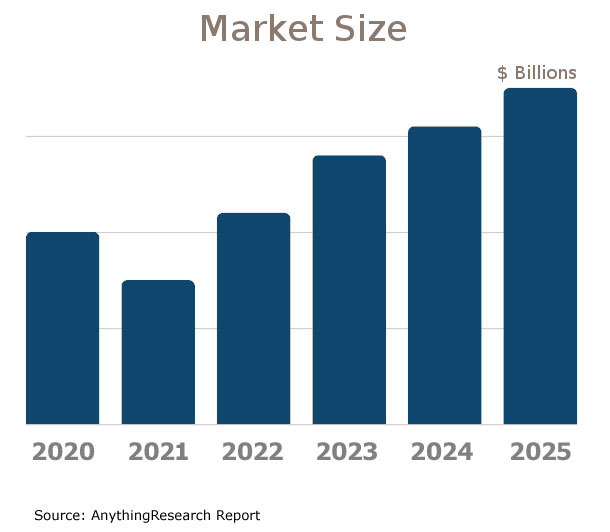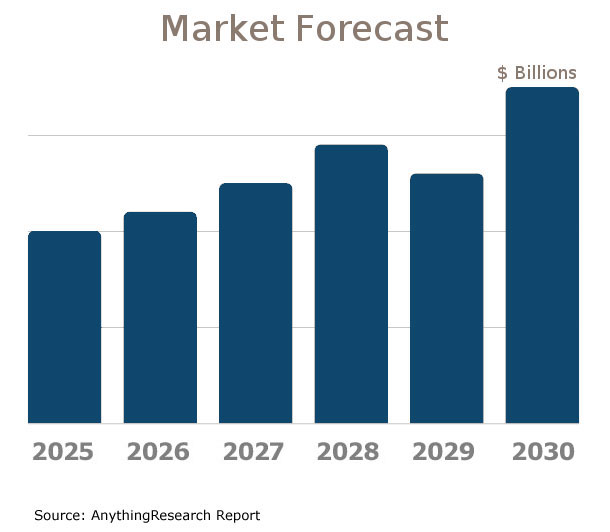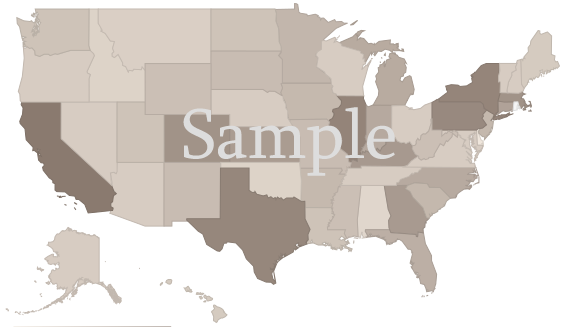| Standard Report | Premium Report | |
|---|---|---|
| Current State of the Industry |  |
 |
| Market Size (industry trends) |  |
 |
| Market Forecast (5-year projection) |  |
|
| Products/Services Breakdown |  |
|
| Revenue per State |  |
 |
| Financial Metrics |  |
 |
| Salary & Compensation Statistics |  |
 |
| Public Company Information |  |
 |
| Key Private Companies |  |
|
| Government Vendors |  |
|
| Instant Download - Available immediately upon purchase |  |
 |
Download both PDF and Excel


|
 |
 |
| Download now: |


2026 U.S. Industry Statistics & Market Forecast - Fruit and Vegetable Retailers
Market Size & Industry Statistics
The total U.S. industry market size for Fruit and Vegetable Retailers:
Industry statistics cover all companies in the United States, both public and private, ranging in size from small businesses to market leaders.
In addition to revenue, the industry market analysis shows information on employees, companies, and average firm size.
Investors, banks, and business executives use growth rates and industry trends to understand the market outlook and opportunity.

| Statistics | 2020 2021 2022 2023 2024 2025 | |
|---|---|---|
| Market Size (Total Sales/Revenue) |
Order at top of page | |
| Total Firms | ||
| Total Employees | ||
| Average Revenue Per Firm | ||
| Average Employees Per Firm | ||
| Average Revenue Per Employee | ||
Market Forecast
Market forecasts show the long term industry outlook and future growth trends. The following extended five-year forecast projects both short-term and long-term trends.

| Forecast / Industry Outlook | 2025 | 2026 | 2027 | 2028 | 2029 | 2030 |
|---|---|---|---|---|---|---|
| Market Forecast ($ millions) | ||||||
| Projected Industry Growth Rate (%) | ||||||
Industry Insights
Major trends affect the Fruit and Vegetable Retailers industry include:- Increasing consumer demand for organic and locally sourced produce
- Growth of online shopping and home delivery services
- Expansion of plant-based diet trend boosting fruit and vegetable consumption
- Impact of climate change on crop yields and supply chains
- Rising health consciousness among consumers
- Technological advancements in agricultural practices
- Fluctuations in global trade policies affecting import and export
- Increased competition from large supermarkets and discount grocers
- Shift towards sustainable packaging to reduce plastic waste
- Adoption of vertical and urban farming to meet local demand
Product & Services Breakdown
Research products and services in the Fruit and Vegetable Retailers industry generating sales. Note that products are broken into categories with different levels of classification.| Product Description | Number of Companies | Sales ($ millions) | Percent of Total Sales |
|---|---|---|---|
Industry Total |
|||
Groceries & Other Food Items For Human Consumption Off The Premises |
|||
Produce, Including Fresh & Prepackaged Fruits & Vegetables |
|||
Dairy Products & Related Foods, Including Milk, Cheese, Butter, Yogurt, Eggs. |
|||
Meat & Poultry, Including Prepackaged Meats |
|||
All Other Groceries & Food Items |
|||
Lawn, Garden, & Farm Equipment & Supplies |
|||
U.S. Geographic Distribution: Revenue Statistics by State
Market Size by State ($ millions) indicates how the industry's competition is distributed throughout the country. State-level information can identify areas with higher and lower industry market share than average.
Income Statement (Average Financial Metrics)
Financial metrics provide a snapshot view of a benchmark "average" company. Key business metrics show revenue and operating costs. The data collected covers both public and private companies.| Industry Average | Percent of Sales (Industry Benchmark) |
|
|---|---|---|
| Total Revenue | Order at top of page |
|
| Operating Revenue | ||
| Cost of Goods Sold | ||
| Gross Profit | ||
Operating Expenses | ||
| Pension, profit sharing plans, stock, annuity | ||
| Repairs | ||
| Rent paid on business property | ||
| Charitable Contributions | ||
| Depletion | ||
| Domestic production activities deduction | ||
| Advertising | ||
| Compensation of officers | ||
| Salaries and wages | ||
| Employee benefit programs | ||
| Taxes and Licenses | ||
| Bad Debts | ||
| Depreciation | ||
| Amortization | ||
| Other Operating Expenses | ||
| Total Operating Expenses | ||
| Operating Income | ||
| Non-Operating Income | ||
| EBIT (Earnings Before Interest and Taxes) | ||
| Interest Expense | ||
| Earnings Before Taxes | ||
| Income Tax | ||
| Net Profit Net Income | ||
Financial Ratio Analysis
Financial ratio information can be used to benchmark how a Fruit and Vegetable Retailers company compares to its peers. Accounting statistics are calculated from the industry-average for income statements and balance sheets.| Profitability & Valuation Ratios | Industry Average |
|---|---|
| Company valuation can be measured based on the firm's own performance, as well as in comparison against its industry competitors. These metrics show how the average company in the Fruit and Vegetable Retailers industry is performing. | |
| Profit Margin Gross Profit Margin, Operating Profit Margin, and Net Profit Margin. Show company earnings relative to revenues. |
|
| Return on Equity (ROE) Return on Equity (ROE) is net income as a percentage of shareholders' equity. Shareholders' Equity is defined as the company's total assets minus total liabilities. ROE shows how much profits a company generates with the money shareholders invested (or with retained earnings). |
|
| Return on Assets (ROA) Return on Assets (ROA) is net income relative to total assets. The market research on Fruit and Vegetable Retailers measures how efficiently the company leverages its assets to generate profit. ROA is calculated as Net Income divided by Total Assets. |
|
| Liquidity Ratios | Industry Average |
|---|---|
| Bankers and suppliers use liquidity to determine creditworthiness and identify potential threats to a company's financial viability. | |
| Current Ratio Measures a firm's ability to pay its debts over the next 12 months. |
|
| Quick Ratio (Acid Test) Calculates liquid assets relative to liabilities, excluding inventories. |
|
| Efficiency Ratios - Key Performance Indicators | Industry Average |
|---|---|
| Measure how quickly products and services sell, and effectively collections policies are implemented. | |
| Receivables Turnover Ratio If this number is low in your business when compared to the industry average in the research report, it may mean your payment terms are too lenient or that you are not doing a good enough job on collections. |
|
| Average Collection Period Based on the Receivables Turnover, this estimates the collection period in days. Calculated as 365 divided by the Receivables Turnover |
|
| Inventory Turnover A low turnover rate may point to overstocking, obsolescence, or deficiencies in the product line or marketing effort. |
|
| Fixed-Asset Turnover Generally, higher is better, since it indicates the business has less money tied up in fixed assets for each dollar of sales revenue. |
|
Compensation & Salary Surveys for Employees
Compensation statistics provides an accurate assessment of industry-specific jobs and national salary averages. This information can be used to identify which positions are most common, and high, low, and average annual wages.| Title | Percent of Workforce | Bottom Quartile | Average (Median) Salary | Upper Quartile |
|---|---|---|---|---|
| Management Occupations | 2% | Order at top of page |
||
| Chief Executives | 0% | |||
| General and Operations Managers | 2% | |||
| Food Preparation and Serving Related Occupations | 12% | |||
| Cooks and Food Preparation Workers | 6% | |||
| Food Preparation Workers | 6% | |||
| Food Preparation Workers | 6% | |||
| Sales and Related Occupations | 39% | |||
| Supervisors of Sales Workers | 5% | |||
| First-Line Supervisors of Sales Workers | 5% | |||
| First-Line Supervisors of Retail Sales Workers | 5% | |||
| Retail Sales Workers | 33% | |||
| Cashiers | 28% | |||
| Cashiers | 28% | |||
| Office and Administrative Support Occupations | 7% | |||
| Production Occupations | 7% | |||
| Food Processing Workers | 6% | |||
| Transportation and Material Moving Occupations | 28% | |||
| Material Moving Workers | 25% | |||
| Laborers and Material Movers | 25% | |||
| Stockers and Order Fillers | 21% | |||
Fruit and Vegetable Retailers Competitor Landscape & Key Companies [PREMIUM]
The most influential companies in the Fruit and Vegetable Retailers industry and adjacent industries either have large market share or are developing new business models and methods that could disrupt the status quo. We look at leading and emerging companies in the Fruit and Vegetable Retailers industry and adjacent sectors:| Market Leaders: Direct Competitors Companies with the largest market share, focused in this industry |
Market leaders: Diversified Competitors Largest companies that have diversified operations in this and other industries |
| Innovators: Direct Competitors Innovative, Emerging, and Disruptive Companies that may influence the future direction of the industry. |
Innovators: Diversified Competitors Innovators and Disruptors in adjacent industries that may also affect the Fruit and Vegetable Retailers industry. |
Latest Industry News
- PHL food retailers seen growing 7% — USDA - THE Philippine food retailing industry is expected to grow 7% this year as modern retail outlets continue to expand, according to the US Department of Agriculture (USDA). Retailers are expanding into rural areas and introducing new food and beverages options, (07/07/2025)
- Singapore trade event to strengthen foothold of Vietnamese fruit, vegetables - VOV.VN - A Vietnam - Singapore trade connection programme for fruit and vegetables is scheduled to take place at the Vietnamese Embassy in Singapore on July 18, aiming to support Vietnamese businesses in expanding exports and penetrating international distribution networks. (07/04/2025)
- UK’s retail inflation is back as govt costs squeeze retailers - The increase follows April’s Budget hikes to National Insurance and the National Living Wage, which have sharply raised retailers’ costs. (07/02/2025)
- Food prices increase again. with meat, fruit and vegetables prices rocketing - Food prices have increased again, with meat, fruit and vegetables going up the quickest, leaving many families struggling to eat well (07/01/2025)
- Retail prices of grocery and vegetable in Bhubaneswar; check full list here - Discover the latest retail prices of grocery items and vegetables in Bhubaneswar, including detailed rates for essentials like rice, pulses, and edible oils. (07/01/2025)
- Farmstand chic: Decor is awash in fruit and vegetable motifs - Interior designer and stylist Jonny Carmack has a “fruit room” in his Danbury, Conn., home. Colorful faux produce bedecks every inch, from the cherry-shaped ceiling fixture to a strawberry side table and a bunch of other juicy gems in decorative forms. (06/28/2025)
- Supermarkets to tell shoppers: swap junk food for fruit and veg, in Wes Streeting plan - Plans for supermarkets include nudging shoppers into simple food swaps, changing store layouts and making products healthier (06/27/2025)
- Saudi Arabia bans sale of tobacco, dates, meat, fruits, vegetables in grocery stores - The new regulation takes effect immediately, but existing establishments have been granted a six-month grace period to comply with the new rules (06/26/2025)
- Cal-Organic Farms Adds Organic Fresh-Cut Vegetables - Cal-Organic Farms, Bakersfield, CA, is expanding into the organic value-added vegetable category with a new line of organic fresh-cut vegetables. The new lin (06/24/2025)
- Belarusian retailers, suppliers obliged to ensure sufficient fruit and veg stock in stores - The document also obliges suppliers to ensure the supply of fruit and vegetable products for retail chains. In turn, retailers must ensure their availability in stores during the off-season. (06/12/2025)




